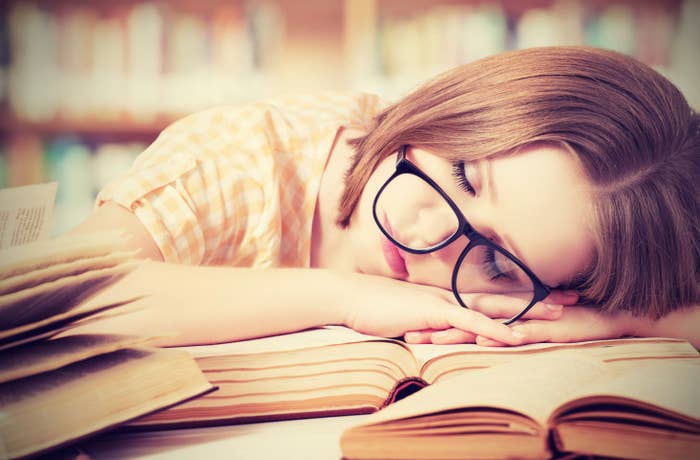Work And School Should Start At 10am To Improve Health And Results, Scientist Argues
A major trial is to begin in Oxford next year.

Starting school an hour later could help teenagers get better results, as well as improving their health, a sleep scientist has claimed ahead of a major trial in British schools.
Dr Paul Kelley, a neuroscientist, argued at the British Science Festival in Bradford that teenagers have different circadian rhythms, or "body clocks", to adults, meaning that they are more suited to later starts. Starting the school day at 10am instead of 9am could improve exam results by as much as 10%, he said. A similar move could also help adult workers because many people's body clocks do not suit a 9am working start until we are 55, he added.
'This is a huge society issue," he told the audience. "Staff should start at 10am. You don't get back to [a natural 9am schedule] starting point until 55. Staff are usually sleep-deprived. We've got a sleep-deprived society. It is hugely damaging on the body's systems because you are affecting physical emotional and performance systems in the body."
Next year, Kelley and his Oxford University colleague Dr Russell Foster are leading a trial in schools called Teensleep, in which some students will start at 9am and some at 10am. Foster has previously said that because of teenagers' different body clocks, getting up at 7am is equivalent to getting up at 5am for adults. "Teenagers who get up late aren't lazy: they naturally need more sleep than adults," he told the Telegraph in 2013.
Previous studies have shown that later start times improve results for children, to the extent that the American Academy of Paediatrics last year changed its advice to suggest that schools start their day later. Research published in the Archives of Paediatrics and Adolescent Medicine suggests that delaying the start of the school day by just 30 minutes can improve sleep quality and time, as well as reducing daytime fatigue and improving mood, health, and class attendance.
Dr Kate Stein, a psychiatrist specialising in children and adolescents, told BuzzFeed News that the idea makes sense. "The evidence is strong that puberty triggers this change towards an evening preference in the kids," she said. "They're just naturally more geared towards the evening. And if they have to get up really early in the morning, they'll be sleep-deprived." She added that sleep deprivation has major negative consequences – "sleep is important in regulating emotion, mental function, even obesity and general health, and substance abuse. If you have crap sleep, you're at much greater risk."
Kelley said there would be "no negative outcomes for moving [the school day] later, no positive outcomes for moving earlier".
Stein said that from her experience working with children with sleeping problems, she expected a lot of support for this move from parents. "What I found surprising is how keen all of these parents were on getting the schools to start later," she said. "[Sleep deprivation] is a really common problem, especially among autistic children. I thought that parents would think it would make their life difficult for them, with work and stuff, but they were enthusiastic."
The Teensleep trial, which will take place in the 2016-2017 academic year, will take 100 schools and assign them randomly to the 10am group and a 9am control, and children will be assessed before the trial and at the end. Some will be fitted with electronic monitoring devices to assess their sleeping patterns.
